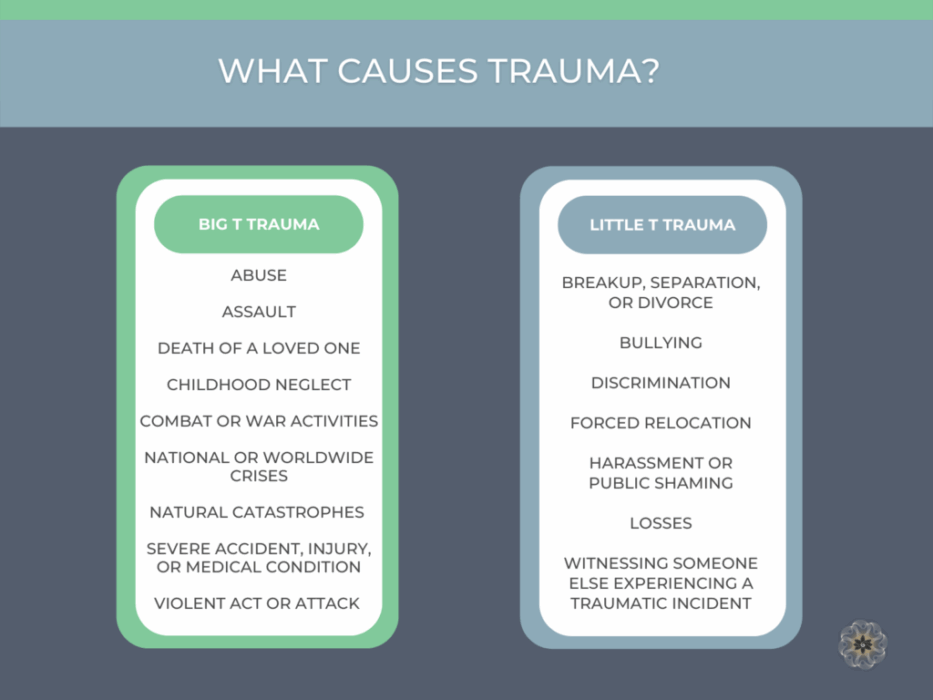
Going through traumatic experiences can be depleting to your mind, body, and spirit.
You may have been holding on to this pain for some time now. Or perhaps you are still trying to understand it, overwhelmed by the triggers and effects on your everyday life.
Whether you suffered abuse as a child, survived a tragic accident, lost someone you loved, or endured other distressing events, you are not alone. Trauma is a complex yet common experience that can be addressed with professional treatment.
At Madison Park Psychological Services, we offer trauma and PTSD counseling to teens and adults in NYC and its nearby areas. We are here to help you untangle and navigate what’s hurting you, so you can carry on with your journey.
Call 212-506-5935 or contact us to start healing today.
Trauma is your natural response to an event that causes distress, threatens your well-being, or puts your life in danger.
This reaction is unique to each individual—what may be traumatic to you may not affect others the same way.
For example, two friends may suffer a violent robbery, and both may be scared during the experience. Yet, one may recover after a few days, while the other might suffer lasting consequences such as flashbacks and intrusive thoughts.
Trauma can result from major or minor experiences, but the effects can be equally debilitating.

Some people endure frequent or continuous painful events, such as domestic violence or multiple losses. This is called complex trauma and may cause intricate traumatic responses that change over time.
When you go through a shocking, scary, or risky experience, your body reacts with its natural fight-flight-freeze response to protect you.
For instance, if you are getting attacked, you may try to push back against the assailant (fight), run away from them (flight), or stay still as you process what’s going on (freeze). Once the attacker is caught and you are back to safety, your nervous system may acknowledge the threat is gone and start calming down.
Yet, sometimes the aftermath of such events may persist and impact other areas of your life. These effects are known as post-traumatic stress. Later on, post-traumatic stress may be triggered, activating the same fight-flight-freeze response even if you are no longer in danger.
Common signs of post-traumatic stress include:
If you or your teen are struggling with any of these symptoms, you are not on your own. Therapy can help you tend to your wounds and alleviate post-traumatic stress.
PTSD can have devastating effects on your entire world.
Imagine being stuck in a fight-flight-freeze response and having recurring post-traumatic stress symptoms long after the traumatic event. The emotional, physical, and mental distress can take a toll on you and those around you. It may affect your ability to work, study, run a household, and maintain relationships.
You may have difficulty focusing, interacting, completing tasks, or caring for yourself and others. You might experience co-occurring mental health conditions such as anxiety and depression. Some people might also suffer from suicidal thoughts or opt for numbing behaviors to cope, thus entering a cycle of avoidance that can worsen symptoms.
If you believe you or someone you love is living with PTSD, do not wait. A psychological assessment can offer an accurate diagnosis and PTSD treatment recommendations to regain your quality of life.
Trauma counseling can help you recover from trauma and PTSD by:
You may be scared to face or explore your pain, but true healing involves unraveling and understanding what hurts.
You will have the opportunity to share your experience, triggers, and symptoms in a safe environment. We will listen and guide the conversation with respect and compassion, highlighting missing links and broadening your perspective.
Therapy will support you in addressing unresolved memories that are still alive in you.
We will employ evidence-based approaches such as Cognitive-Behavioral Therapy and Acceptance and Commitment Therapy to help you reprocess distressing thoughts, emotions, or sensations related to your trauma. The goal is not to erase past events or ongoing heartache but to reframe them so you can ease your nervous system.
Rewriting your trauma story may take some time. Whether you are experiencing PTSD or post-traumatic stress, therapy provides practical strategies to cope with symptoms and manage triggers.
You can implement these skills as you work with your therapist, between sessions, and after treatment is complete. The purpose is to offer reliable support in and out of therapy and empower you with tools for life.
At Madison Park Psychological Services, we offer therapy for trauma and PTSD to help adults and teens find freedom from trauma. We also specialize in anxiety, depression, relationship problems, and other conditions.
Our therapists employ different therapeutic modalities, always striving to tailor treatment to your needs, preferences, and values.
Our services are available online via teletherapy. Our team speaks various languages, including English, Korean, Greek, Farsi, and Lithuanian. We welcome and embrace everyone—all cultural backgrounds, races, identities, and orientations.
Trauma does not have to stop you from living. Let’s work together to help you gain relief so you can continue to work, love, and play.
Book an appointment or call 212-506-5935 for more information about our trauma therapy service.
We’ll design an effective, individually tailored treatment to help you reach optimal health and well-being.
To contact us or book an appointment, please complete the form below.